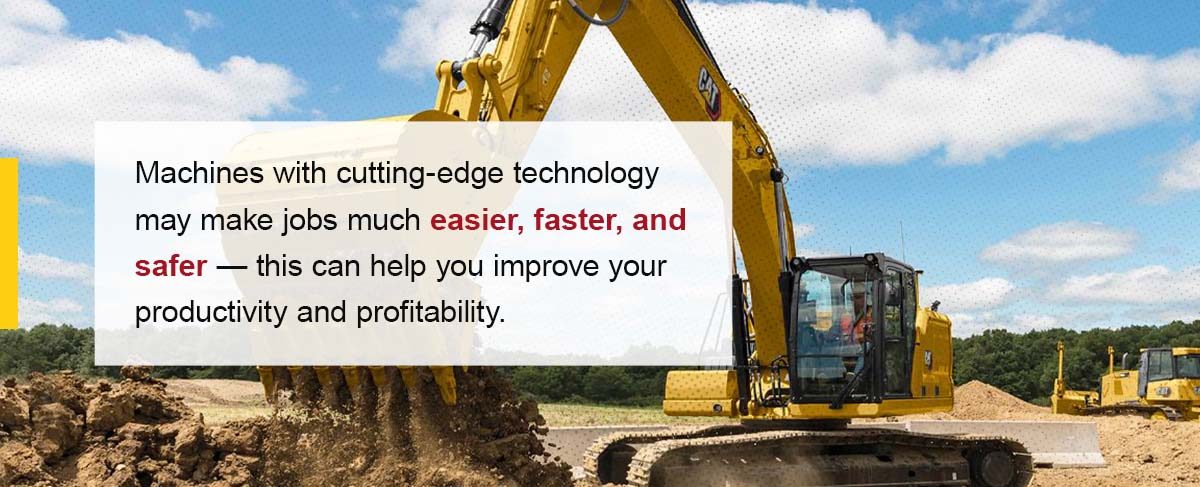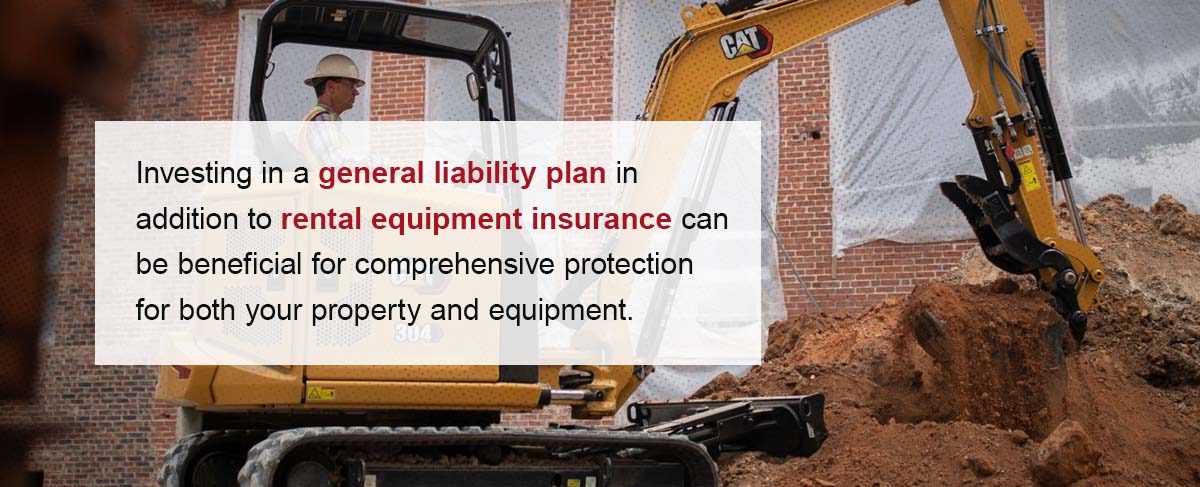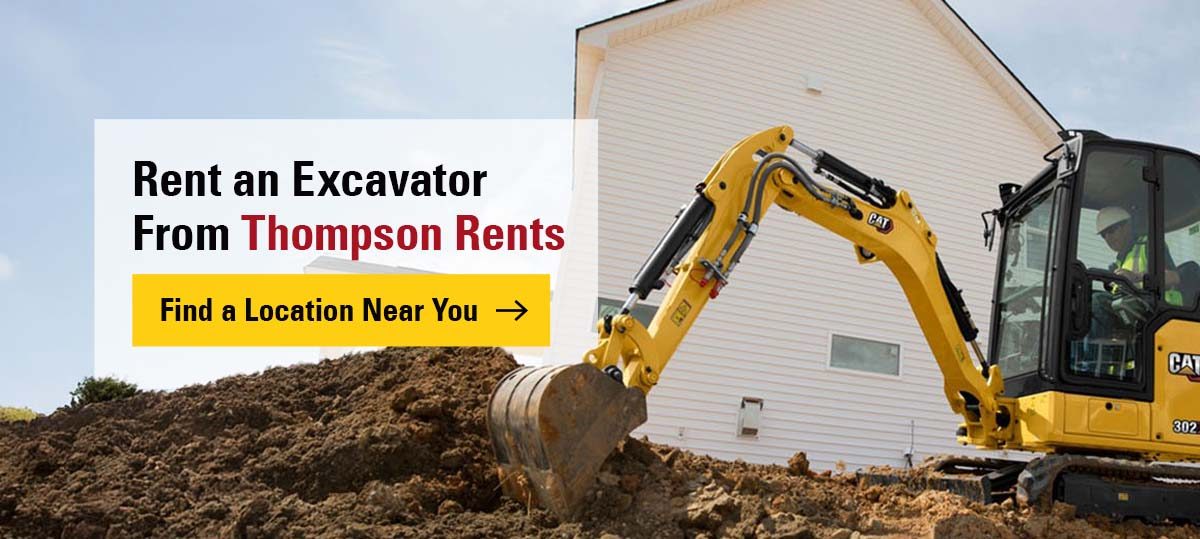A Full Guide to Renting an Excavator
Excavators, also known as power shovels or steam shovels, are among the most commonly used and rented pieces of heavy equipment. These machines are highly versatile and have a variety of uses, including trench digging, landscape grading, moving large objects, and demolition.
If you need an excavator for your upcoming project, consider renting one. This guide will teach you everything you need to know about renting an excavator.
Benefits of Renting an Excavator
Compared to purchasing an excavator, renting can be a better option. Here are a few of the benefits of renting vs. buying:
- No capital investment: Purchasing new equipment can be an investment, but it comes at a significant expense. While you can take on debt to buy an excavator, doing so can put your business at risk. By renting, taking on debt isn't needed, and you can instantly get access to the equipment you need.
- No repair costs: Any piece of heavy machinery needs to be repaired and maintained regularly to extend its life cycle. When you purchase an excavator, you need to factor in these ongoing costs. By renting from a dependable supplier offering well-serviced equipment, you avoid financial responsibility while still receiving an excavator that performs at its peak.
- The right equipment: No matter your industry, you likely know every job is unique. Renting an excavator can give you access to models that can fulfill the needs of each job’s scope. On the other hand, when you purchase this machine, you are locked in — this may damage your project's bottom line. For example, an excavator that is too small might not have the suitable capacity for larger jobs, resulting in additional trips to move the necessary materials.

- The latest technology: Machines with cutting-edge technology may make jobs much easier, faster, and safer — this can help you improve your productivity and profitability. When renting from a reputable source, such as Thompson Rents, you will receive the latest models and technology. If you purchase a new excavator, you will eventually need an upgrade. Otherwise, your equipment will be outdated.
What to Consider Before Renting an Excavator
Before you rent an excavator for your upcoming job, consider the following factors to help ensure that the rental process is as smooth as possible.
Where Can I Rent an Excavator?
Various rental companies offer excavators for rent, both locally and online. Each option has advantages and disadvantages.
While online rental companies usually have a wider selection of equipment, you would need to have the excavator shipped to your jobsite, which can be costly. Due to the nature of these businesses, you might not be able to view the machine before you rent it — you won't be able to verify the quality or condition of the excavator until it arrives.
On the other hand, local rental companies might have a smaller inventory. However, they usually offer more personalized services, such as delivery and pickup. You will likely also be able to check the excavator's condition before renting it.
If you are looking for excavators for rent and are based in Alabama or northwest Florida, Thompson Rents is the region's only authorized Cat® dealer. We provide top-tier excavators from Caterpillar, the world's leading manufacturer and supplier of construction and mining equipment. We also efficiently deliver the machines to your facility or jobsite.
What Are the Different Types of Excavators?
Excavators are available in three main sizes to suit various projects. By having a good idea of the benefits of each size, you can determine the correct machine for your needs:
- Mini excavators: Cat mini excavators are the smallest option, weighing between one and 10 metric tons. These models are perfect for projects with limited space, such as those in residential or urban areas, as they are compact and lightweight. They are also ideal for smaller-scale jobs, as their capacity is much more restricted than bigger excavators.
- Standard excavators: These models are the most versatile. Although Cat standard excavators weigh anywhere from 22 to around 38 metric tons, they can still move around a jobsite easily. They also have the necessary hydraulics to be compatible with various attachments. Standard excavators offer more power, dig depth, and reach than their mini counterparts, so they are better suited to larger projects and are popular in the construction industry.
- Large excavators: As their name indicates, these are the biggest types. The largest Cat excavators weigh more than 90 metric tons, so they are less mobile than smaller machines. However, they offer an immense amount of power, durability, and speed. These pieces of equipment are best for large-scale industrial and mining operations.
How Hard Is Operating an Excavator?
Once you have taken the time needed to gain the skills to master operating an excavator, it can be easy. Of all the different types of excavators, mini models are the simplest to use. However, proper training is vital regardless of machine size.
Having trained operators who are compliant with the Occupational Safety and Health Administration (OSHA) standards can reduce the likelihood of worksite injuries, fines, and damaged equipment. To help set our clients up for success, Thompson Rents also provides expert training for heavy Cat machinery, such as excavators. Our thorough courses allow you or your operators to learn the expertise and safety protocols needed.
Do I Need Insurance to Rent an Excavator?
Most rental companies require you to either have a Certificate of Insurance or agree to the terms of their coverage plan.
When you rent an excavator, a construction equipment rental insurance policy can cover the costs of damage or replacements and help reduce your financial liability. Most equipment rental insurance policies cover:
- Accidents
- Repairs
- Theft or losses
- Site and equipment damage
As many property insurance companies have the option to add rental insurance to an existing plan, you can purchase a policy with your current provider. If you are looking for a short-term rental plan or do not have property insurance, your rental company will likely offer equipment rental insurance as part of the rental agreement. In this case, you will only be covered for the duration of your rental period, whereas you can purchase more permanent policies with insurance providers.

General liability insurance is another potential option. With this plan, you will typically be covered for damage and repairs caused by equipment, whether rented or owned. This policy can protect your property, assets, and finances while on the job. But, it does not extend to damage to your equipment caused by an accident and the required repairs. Investing in a general liability plan in addition to rental equipment insurance can be beneficial for comprehensive protection for both your property and equipment.
At Thompson Rents, we offer rental equipment protection (REP). REP is separate from your equipment coverage and lasts for the entire rental timeline. By choosing REP, you are covered for equipment damage and loss as the result of:
- Theft
- Collisions
- Vandalism
- Overturning caused by uneven grounds or loads
- Falling objects such as branches or scaffolding
Renting an Excavator: Step-by-Step Process
Once you have considered the above factors, you will be ready to begin the rental process. Here are the main steps you need to take to rent an excavator.
1. Select a Rental Company
Choosing the right rental company is paramount. Researching trustworthy rental services like Thompson Rents should be the first step in the rental process. By renting an excavator from a reliable dealer, you are much more likely to complete your projects and generate a return for your efforts. Before selecting a company, ask yourself the following questions:
- Do they have a good reputation?
- Have they been in the industry for a long time?
- Do they supply excavators from well-known brands?
- Are their outlets located near your jobsite or facility?
- Do they frequently service and look after their equipment?
- Will they guide you in selecting equipment suited to your needs?
Once you find a rental company that meets the above criteria, you have peace of mind that you are working with a company that cares about the growth of your business and will provide you with high-quality equipment.
2. Choose the Right Size Excavator
Another key part of the process is determining which size excavator you need to rent. A machine that is too small can be a barrier to completing your project, as you may lack the necessary power. Yet operating one that is too big can be challenging due to its hefty size and may use excessive fuel.
Here are the factors you need to consider to help ensure you choose the correct size excavator:
- Project scope: Assess the scale and requirements of your project, including the job type and the tasks the excavator will typically perform. Mini excavators like the Cat 302 and 303 models are best for small-scale projects such as indoor jobs and underground excavation. If your project involves heavy-duty debris removal, construction, or trench digging, a standard excavator like the Cat 313 model will be more suitable.
- Site condition: Evaluate the terrain type and accessibility of your jobsite and choose smaller machines if your jobsite has space constraints or certain obstructions like trees or surrounding buildings. An excavator that is too heavy can cause harm to highly sensitive surfaces like asphalt, concrete, and lawns. Small models are much gentler on terrain and can leave fewer track marks.
- Load weight and capacity needs: Determining the weight and volume of the materials you need to move can also help you choose a suitable size. The machine's capacity will dictate how much material you can move in one cycle and how quickly you operate. If you regularly work with heavy materials, ensuring your equipment can handle the demands of your project is also vital.
A reputable dealer can advise you on the right size equipment for your specific needs.
3. Check Equipment Condition
If you are sourcing your excavator from a local rental company, ask your dealer if you can view the machine to assess its quality. Equipment in poor working conditions can negatively impact productivity and your business's bottom line. For example, a faulty excavator may cause your project to be paused to have the machine serviced, leading to a late delivery.
When inspecting any piece of equipment, keep an eye out for:
- Overall appearance: Faded paint and rust can be signs of an old machine, along with noticeable wear and tear on the controls and monitors.
- Leaks or drips: Excavators with fluid leaks were likely not appropriately maintained.
- Missing components: Anything missing from the machine, such as a safety guard, is unacceptable.
If you notice these issues, it can be a sign that it's time to find a new rental company. When you work with a trusted dealer, all machines will be in working condition. For example, excavators from Thompson Rents are regularly serviced, meticulously maintained, and well-looked after.
4. Determine the Rental Period
Once you know the model you need and have confirmed it is in prime condition and ready to work, determining whether you need a long-term or short-term rental is the next step — by planning ahead, you are more likely to secure the necessary equipment.
Follow these tips when deciding how long to rent an excavator and scheduling your rental:
- Know your dates: Your excavator should be delivered on your project's exact start date. If it is dropped off prematurely, you may pay more than you need to. On the other hand, late deliveries can lead to excessive downtime. Remember to factor in returning the machine, so be realistic about your project's end date.
- Give notice: If you need your rental during the spring or summer, which are the typical peak operating seasons, there will likely be a high demand for equipment. Booking your excavator well ahead of time helps ensure you get the model you need when you need it. Regardless of the season, be cautious of leaving it up to the last minute.
- Confirm with your dealer: In the weeks before your project starts, periodically communicate with your rental company to ensure everything is in order.
5. Understand the Rental Agreement and Terms
The last step is thoroughly understanding the rental agreement, a legally binding contract you must sign before hiring an excavator. This document will outline the terms and conditions of the rental and will often include elements such as:
- The length of the rental period.
- The rental fees and terms of payment.
- Who is responsible for what in the event of accidents, damage, and losses.
- Any insurance requirements.
- The process for terminating or renewing the contract.
These terms can significantly affect the total cost and convenience of the rental, so you should take the time to review them carefully.
Maintenance Basics for Rented Excavators
In most cases, looking after your rented excavator is part of the agreement — knowing how to care for this machine can allow for a smooth return to your dealer. Whether your rental period is one week or one year, regular maintenance can also help you get the most from your equipment and ensure that your jobsite is a safe working environment.
Along with adhering to the maintenance recommendations of the equipment's manufacturer provided by your rental company, here are some tips for maintenance and safety:
- Conduct daily checks: Check the oil and fluid levels, operational controls, wheels or tracks, and safety features daily and keep records of these checks.
- Report any issues: If you notice any problems or if your operators become aware of signs of excessive wear, alert your dealer as soon as possible. If the excavator suddenly breaks down or needs repairs, consult your rental agreement, which should indicate how to handle malfunctions. In this case, you should also let your dealer know.
- Follow proper usage guidelines: Always stick to OSHA's safety precautions for excavation to help reduce any hazards and eliminate risks.
Rent an Excavator From Thompson Rents
Finding the right dealer can make the overall rental process much easier and help ensure that you get access to high-quality equipment manufactured by dependable brands. If you are looking for a Cat excavator for rent in Alabama or northwest Florida, Thompson Rents is here to be your supplier.
As a full-service equipment provider, we have served the region since 1957. In addition to our wide selection of excavators, we offer affordable pricing and exceptional support to ensure a positive rental experience. Stop by one of our locations to view our machines and meet the team. If you need more guidance on renting an excavator or have questions, call us at 833-937-3683.
